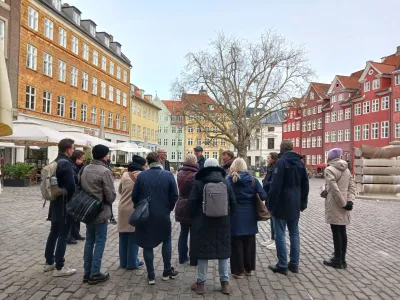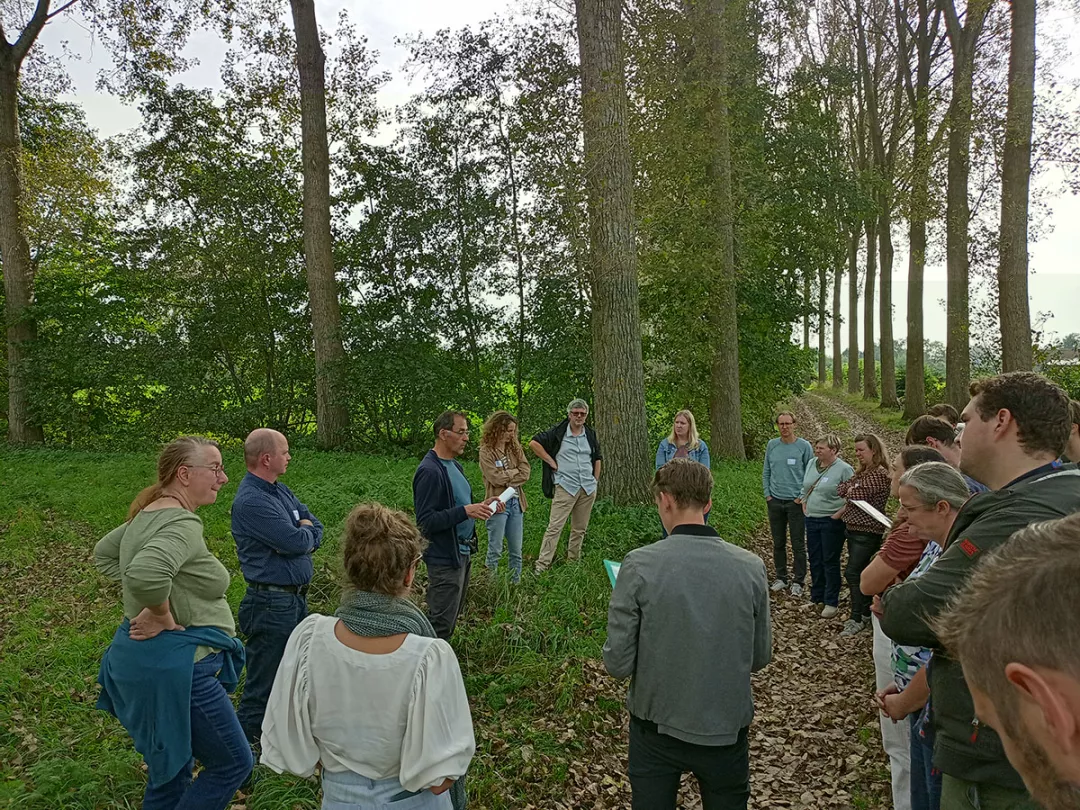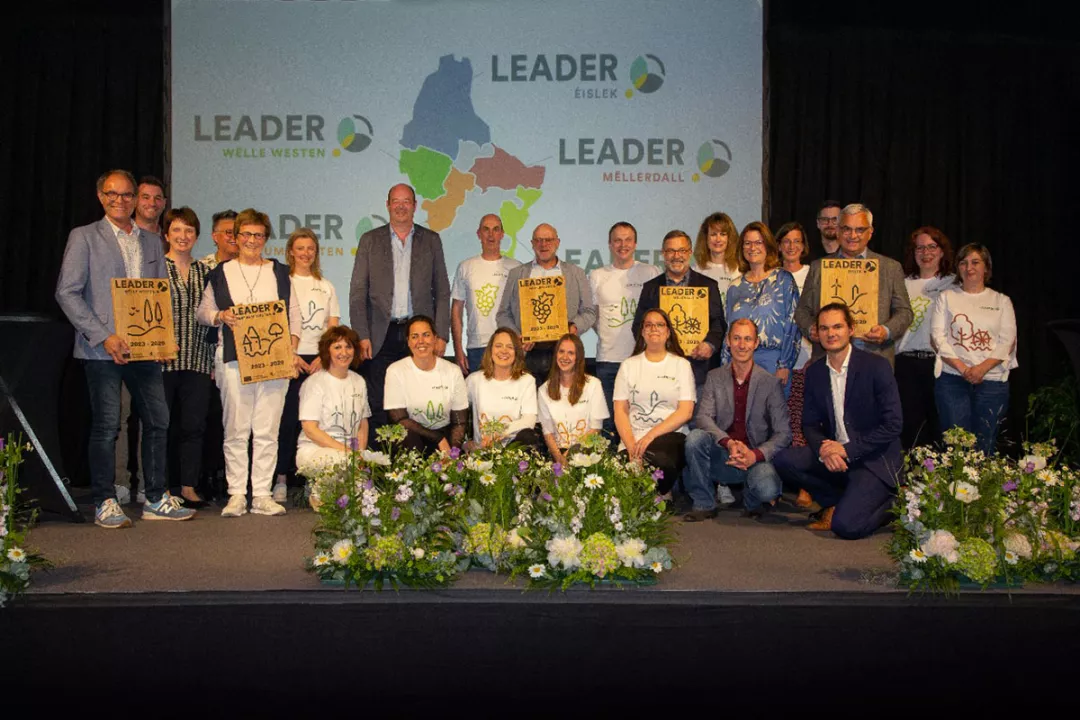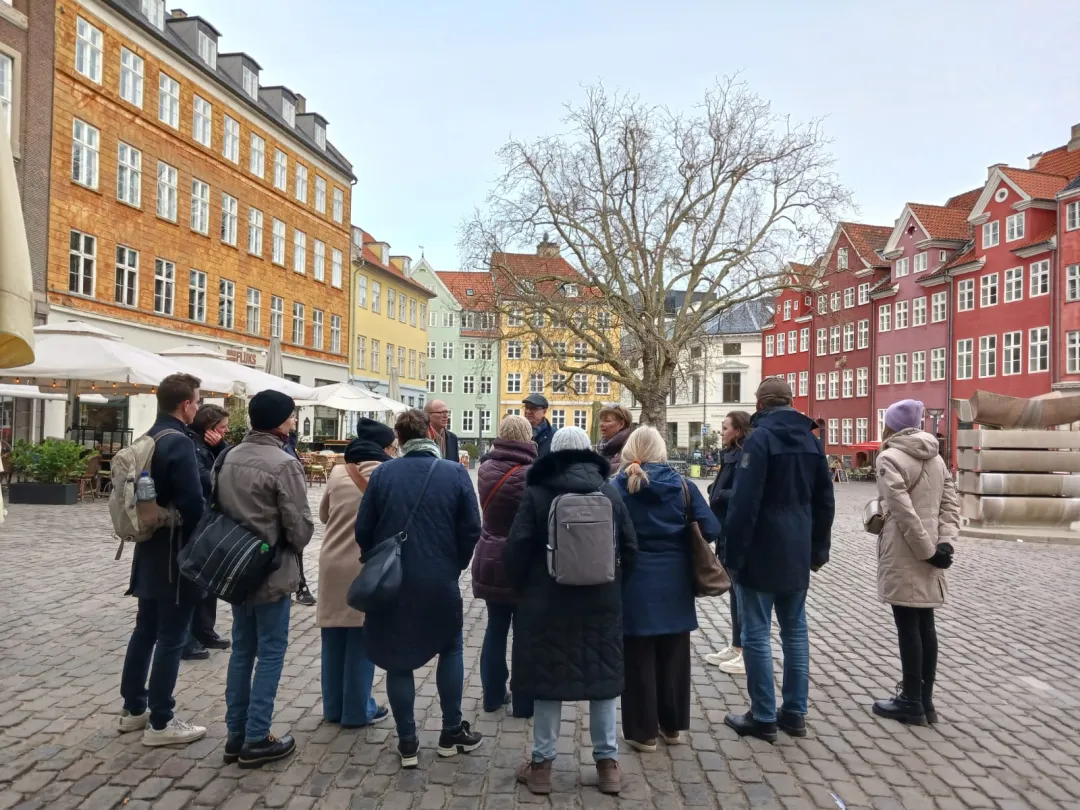National Networks: proud of networking
The impact of networking is often difficult to measure and sometimes goes unnoticed. The social media #ProudOfNetworking campaign highlighted the results of this key activity by the National Networks.

Page contents
The impact of networking is often difficult to measure and sometimes goes unnoticed, yet it is a key activity of the National Networks. In summer 2024, the EU CAP Network launched a social media campaign called #ProudOfNetworking, to highlight and promote the variety of networking activities carried out by National Networks. The activities promoted in the campaign were based on networking highlights reported by NNs in the yearly Common Network Statistics.
The Common Network Statistics (CNS) is a yearly survey (started in 2016) through which the EU CAP Network collects information from the National Networks (NNs) about their activities. The aim of the CNS is to use common data for benchmarking at the EU level, promote EU-wide networking activities, raise awareness of the achievements of NNs, and track progress within each individual NN.
Within the CNS, NNs are asked to provide their top three networking achievements of the year, including events, visiting good practice projects, trips to exchange experiences and knowledge, publications and other communication and dissemination activities, and thematic working groups. The impact of networking is often difficult to measure and sometimes goes unnoticed, and yet NNs can be proud of their very impactful and important work.
To shine a light on the important work of the NNs, the EU CAP Network launched the social media #ProudOfNetworking campaign, hoping to contribute to highlighting the role of networking in implementing the Common Agricultural Policy (CAP) and moving rural Europe forward.
Throughout the summer of 2024, this series of posts generated considerable interest among stakeholders and high social media engagement by the NNs themselves. Here is a summary of the social media posts published in the framework of this social media campaign.
#ProudOfNetworking – facts and figures
The social media #ProudOfNetworking campaign ran from July to September 2024 and consisted of a series of 24 posts highlighting the networking activities of each National Network.
On Facebook and Twitter/X, posts received more than 100 impressions on average, with some posts on Twitter/X reaching more than 250 impressions. The numbers on LinkedIn were even higher, with some posts reaching more than 300 impressions. Stakeholders were also keen to re-share the posts – posts were shared more than 30 times across all three platforms.Networking & communication
The campaign highlighted several initiatives surrounding communication and dissemination activities by NNs, for example, the “Rural Talks” podcasts by the Estonian Network, which aim to highlight people who live and work in the countryside, inspire listeners, improve the positive image of rural areas, share stories, and introduce the rich possibilities of rural life. The podcast releases up to two episodes per month, and features farmers, rural activists, entrepreneurs and rural developers as guests.

The Swedish Network’s “Good News for Everyone” campaign is a good example of ways to reach new audiences, especially young people who may have little knowledge of what EU funds are used for. The campaign consisted of promotional videos, templates for social media posts, sample web pages, and supporting facts. The campaign has resulted in 2 100 webpage views and over 9 000 interactions on social media, of which 3 500 clicks to the campaign page on Facebook.
The Latvian Network’s clever question-and-answer forum about the CAP used video and explanatory materials. The forum webpage was visited by 24 915 people in the first six months, and published 384 answers and explanations.
#ProudOfNetworking also included posts about the Slovenian and Maltese Networks’ dissemination events. The Slovenian Network held a two-day conference in which the second day was dedicated to presenting 12 new Slovenian EIP Operational Groups’ projects. The event was attended by 270 representatives of agricultural advisors, researchers, farmers, and the Ministry of Agriculture. The Maltese Network held an event where they promoted the CAP to farmers and the public.
The Lithuanian Network’s in-person Nordic-Baltic Cluster Networking meeting was also highlighted. This in-person event in Vilnius in September 2023 discussed the role of communication and networking, the NN's experience in successful communication initiatives, and identifying and exchanging shared interests.
Networking & LEADER
Regarding networking activities around LEADER, the Danish and Luxembourgish Networks both organised launch events for the new LEADER 2023-2027, which were included in the #ProudOfNetworking campaign. In Luxembourg, the launch event was the first time that all the LEADER regions celebrated the start of a new period together.

The Croatian Network ran an informative campaign called "Differences connect us, LAGs inspire us" that promoted Local Action Groups (LAGs) through the web and social media. The aim was to raise awareness about the working scope of LAGs and to involve the broader local community. The Flemish Network organised a series of events around LEADER called “LEADER Learning Networks” during which NNs, LAG managers and Managing Authorities delve deeper into relevant LEADER themes.
Networking & collaboration
Another networking event that was promoted in the campaign was the 2nd Conference on “Agricultural Development: from Research to Practice”, organised by the Cyprus Network. At the conference, which was attended by more than 300 delegates, projects related to rural development and their impact on advisory service systems were presented. The Italian Network’s efforts to combine research and practice resulted in a new network being created between the NN and the Interregional network in the Department of Agricultural, Forestry, Aquaculture and Fisheries Research and Services, with the aim of collecting regional needs for innovation measures.

The Portuguese Network launched the Agricultural Knowledge and Innovation Systems (AKIS) platform, which will streamline communication between research and production, and support the building of a community in the agricultural sector. A post about the Finnish Network commended their work on building three innovation market pavilions to showcase innovations at agricultural fairs. Study visits have been used by the Finnish Network to stimulate innovators on new topics, for example, a study trip was organised to the AgriTechnica fair in Germany.
Networking & knowledge exchange
A series of events by the Hungarian Network called “Local product” were included in the #ProudOfNetworking campaign. These events aimed to inform farmers, market operators, trademark users, and food producers about local products and related legislative changes. The Polish Network’s symposium on rural tourism focused on local development. The aim of the symposium was to integrate communities focused on the development of rural tourism and to establish a platform for the exchange of knowledge.

The German Network’s post was about their series of events on the European Agricultural Fund for Rural Development (EAFRD) and the environment, which brought together representatives from federal and state governments, agriculture, and nature conservation stakeholders to discuss approaches of cooperative agri-environmental protection. The Dutch Network’s study trip to Brussels was included in the campaign, which involved more than 50 people travelling to Brussels to get to know the ins and outs of the EU policy arena.
The #ProudOfNetworking campaign was also an opportunity to promote the launch event of the Spanish Network, where the NN presented their upcoming events to the Ministry of Agriculture, Fishery and Food.
The French Network was included in the campaign for the organisation of a call for projects on themes such as simplification, generational renewal, and the agro-ecological transition. Other important posts were made on the Greek Network’s effort to bring together policymakers, farmers and advisors to achieve better implementation of eco-schemes, the Slovak Network’s young farmer clubs that included training for young farmers on CAP support, and the Austrian Network’s working group on gender equality that will explore in which areas gender equality can be improved and provide practical support to the actors involved. The Romanian Network’s achievement of having a project winner in the ARIA 2022 Awards and a project shortlisted in the ARIA 2023 Awards was also highlighted.
Networking & CAP implementation
Networking is at the heart of the European Union as a shared civic and political project, and is essential for the sound implementation of EU policies, including the CAP and its Strategic Plans (CSPs).
In a context where Member States have much more flexibility and subsidiarity in the design of CSP interventions, networking is a key tool to drive and steer policy and promote stakeholder engagement, knowledge sharing, and capacity building, for Member States and other actors. The scope of networking activity covers both pillars of the CAP. A single Union-level CAP Network ensures better coordination between networking activities at the Union level and the national and regional levels.
The EU CAP Network is a knowledge and information-sharing forum through which National CAP Networks, organisations, administrations, researchers, entrepreneurs, and practitioners can benefit from peer-to-peer learning and good practices about agriculture and rural policy. The EU CAP Network website offers useful tools for networking and cooperation, including contacts and information about the National Networks and LEADER LAGs, as well as country data. All this helps stakeholders learn more about the situation in their own countries and across the EU, and connect with each other. Good practices and related publications offer inspiration to apply the CAP in different contexts, while Thematic Groups are invaluable opportunities to create and strengthen connections across countries and stakeholder types based on common topics of interest.


